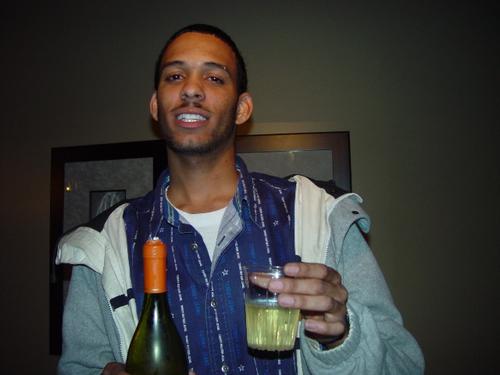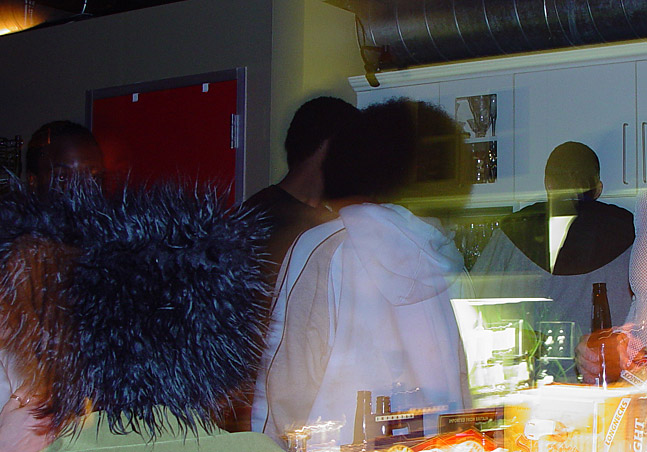The brilliant Master Shirky offers a stunning critique on the limitations of RELATIONSHIP (with clarifications).
Key Shirky views:
– “a formal and explicit ontology for human relations is unworkable”
– “most human relations cannot be made explicit without changing the nature of the relationship”
– terms for classifying relationships are unbounded (and hell, people can’t do do it anyway)
– FOAF developers can’t develop their own ontology because of their insider role
Not only do i agree his views on the matter, i think that they need to be affirmed. I’m also SUPER psyched that he referenced that AI debates because this historical precedent is crucial for understanding why so many of the discussions around social software are flawed.
I would also like to add a few additional points to why this problem is unsolvable:
Relationships are situated within a CONTEXT.
Think about the times when you’ve introduced somebody differently to different people. Here’s an example. Said to boss: “Alex is my friend.” Said to best friend: “Alex is this girl i’m fucking.” Said to mom: “Alex is this nice girl i’m dating.” Which is it? All? None? Context!
Another context: time. Your relationship with someone changes over time. Duh. But guess what? It also changes over local periods of time. For example, i can label the person in my kitchen right now as my ex. I can also label him as tonite’s chef. When i’m done with this entry, i’ll probably label him my confidante. His role is not consistent.
Relationships are defined by CULTURE; their types are SOCIAL CONSTRUCTS.
The term “friend” means different things in different cultures. Hell, even the term cousin differs. In fact, if you want to have a field day, check out anthropology kinship research. For some cultures, what we might call “uncle” another culture would call “father” (an individual would have multiple fathers). To define a universal relationship structure is to project our cultural norms onto other peoples. Yet, without a universal structure, there’s no common language.
On a more personal level, how many of you have ever called your step-mum mum? Are you lying? How would you categorize her here? What about your adoptive mum? What are the implications for you, for her, for others? People label their step-mums and adoptive mums as mum as a social construct to indicate the value of the relationship, not simply a reflection of the biological term. Likewise, there’s nothing worse than telling someone “you’re just my step-mum” or “you’re not my real mother; you just adopted me.” What are the implications for using those terms in an ontology?
Relationships do not exist without POWER.
No relationship exists without power (see Foucault’s “History of Sexuality v1”). Power can be shared via turn-taking, but there is no such thing as pure equality in a relationship. There are times when one person has power over another; sometimes, the reverse is true. Relationships are a negotiated process.
While labeling some relationships, the power dynamic is unveiled. For example, i cannot be the mother of the person who is the mother of me. Inherently, there’s a mother/daughter relationship, marked explicitly by its power. Some such relationships are only 1-way: fan/stranger. The obsessed doesn’t know the obsessor.
Then there are the relationships that we’re determined to define equally. Friend-Friend. Do both people get the same thing out of the relationship? Does “Friend” mean the same thing to each person? Hell, think of all of your friends. Do you really mean the same thing when you label dozens of different people with that term? (If you do, please seek therapy.) We throw that word around because often the process of making explicit the power dynamic is neither socially acceptable nor something we want to own up to.
Relationships are often built on an undiscussed meeting of each other’s needs. “She’s my friend because she always gives me a ride home. In return, i listen to her bitching about her job.” Both people are getting something out of the relationship that they each need/want. It’s valuable to each of them, but neither really wants to make that explicit.
The best debate on this inevitably surrounds sex. Sex workers have the negotiation down. Money for sex. People may scoff at this explicit negotiation, but many of us have had sex for far less honorable reasons. Ever had sex with your lover so that s/he’ll go to sleep? Ever had sex to spite someone? To get what you want? Sexual relationships emerge from power dynamics. Rarely do people engage in sex for the exact same reason. To get off? To feel loved? To feel validated? The BDSM community recognizes this power dynamic and makes it explicit; most of us do not.
Given that most of us aren’t really able to address our power issues, how are we supposed to label them?
Update: Ideas Bazaar discusses this in terms of kinship terminology, anthro style. The focus is on lack of quality terminology. [via Foe]


